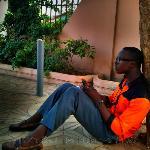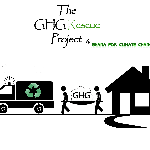Please find below the
Finalist Evaluation
Judges'' ratings
| • | Novelty: | |
| • | Feasibility: | |
| • | Impact: | |
| • | Presentation: |
Judges'' comments
SUBJECT: Your proposal has been selected as a Finalist!
Congratulations! Your proposal, GHG Rescue; Buying Waste from Households and selling it to Recycle Companies in the Waste Management contest, has been selected to advance to the Finalists round.
Be proud of your accomplishment – more than 350 proposals were submitted and only a very small number have been advanced through these two rounds of judging.
As a Finalist, your proposal is eligible for the contest’s Judges Choice award, as well as the contest’s Popular Choice award, which is determined by public voting.
If you haven’t already, you will soon receive an email from the Climate CoLab staff with details about the voting period. If you don’t receive that email within the next day, or have other questions, please contact the Climate CoLab staff at admin@climatecolab.org
All winners will be announced the week after the voting period ends, on September 12, 2015 at midnight Eastern Time.
Both Judges Choice and Popular Choice will receive a special invitation to attend selected sessions at MIT’s SOLVE conference and present their proposals before key constituents in a workshop the next day, where a $10,000 Grand Prize will be awarded. A few select Climate CoLab winners will join distinguished SOLVE attendees in a highly collaborative problem-solving session. Some contests have additional prizes given by the contest sponsor.
Thank you for your work on this very important issue. We’re proud of your proposal, and we hope that you are too. Again, congratulations!
2015 Climate CoLab Judges
Additional comments from the Judges:
Judge 2: Excellent proposal for a very difficult problem. Assuming the numbers estimated for $/ton paid by the respective companies is accurate and the estimates of tons recovered is reasonable, I see great potential in the project being successful.
Judge 2: Thanks for updating your proposal to address some concerns. To the first point about capacity in Ghana - I think there needs to be some more research and distinction made into the difference between a materials recovery facility and a recycling plant that actually manufactures a new product out of recycled materials. the ACaRP looks like a fantastic composting plant and materials recovery facility for other waste streams, however it does not look like they manufacture a product from recycled materials (unless I am mistaken, which is totally possible.) I still feel as though where the jobs are being housed needs to be clarified a bit. You state that they will be at the nexus hubs but I'm not clear which entity will be operating those sites. Are they independent of each other or is there a 3rd party operating all sites? Overall, this is a great proposal, good luck!
Semi-Finalist Evaluation
Judges'' ratings
| • | Novelty: | |
| • | Feasibility: | |
| • | Impact: | |
| • | Presentation: |
Judges'' comments
Congratulations! Your proposal, GHG Rescue; Buying Waste from Households and selling it to Recycle Companies in the Waste Management contest has been selected to advance to the Semi-Finalists round. You will be able to revise your proposal and add new collaborators if you wish, from July 1st, 2015 until July 14, 2015, midnight Eastern Time.
At the revision deadline listed above, your proposal will be locked and considered in final form. The Judges will undergo another round of evaluation to ensure that Semi-Finalist proposals have addressed the feedback given, and select which proposals will continue to the Finalists round. Finalists are eligible for the contest’s Judges Choice award, as well as for public voting to select the contest’s Popular Choice award.
The Judges' comments are posted below.
Please incorporate answers to these comments in your revisions, or your proposal may not be advanced to the Finalists round.
Judges 1: Great proposal! Well articulated, researched, and thought out. A few questions: What does the existing materials recovery network look like in Ghana? Are there domestic recycling facilities? How many? If not, what are the nearest markets for recyclable goods? In regards to the "Nexus" proposal of storing waste before transfer to final destination (we call them Waste Transfer Stations here in NYC) do they exist at all in Accra? If not, is there a plan to locate them in appropriate areas so as to not negatively impact residents? Also, any thought to recovering materials for re-use as opposed to recycle? And a big economic question: The proposal mentions the creation of jobs, but also cites that the materials will be dropped off by city residents. Are the jobs stated and associated incomes formal or informal? If formal, where are these jobs housed? Is it through the private recycling firms, through the government or a 3rd party? Overall very interesting proposal that definitely has legs!
Judge 2: The project is not uncommon. The writer should address the aspect of awareness creation, training on waste separations, and waste reduction. The aspect of waste reduction, reuse and refill should be addressed.
Judge 3: Question over who pays for recovered material?
Thank you for your great work and again, congratulations!
2015 Climate CoLab Judges.
 Abraham Bugre Jul 14, 2015 02:28 | Proposal creator
First of all we want to thank the judges for advancing our proposal to the semi's, we are very grateful for this opportunity. We also find all the comments made by the judges as very important and useful to our proposal hence its incorporation into our proposal.
Specifically this is how we tackled the issues raised by our distinguished judges:
Judge1: We have provided an outlook on the recycling in the city of Accra where the project will be piloted in the project summary section, in point 4 of our proposed actions we wrote; "There are currently over 11 recycling companies in Accra, they recycling materials like plastics, organics, metals and papers. The Accra Compost & Recycling Plant (ACARP) is the largest with a 600 tonnes per day capacity, the company is already receiving carbon credits with the other companies also doing grate work in total. The G4CC team has already established contact with ACARP and the company will be in the main target for the materials received at the Hubs due to their reliable capacity of operation".
With the question on the Nexus or Waste Transfer Stations as known in NYC we also touched on it. We researched on some of the problems that NYC have faced with Waste Transfer Stations and learned some lessons, we therefore added to point 2 of our proposed actions saying; "With the help of city planners, the Nexus will be situated in appropriate locations to make sure the the possible negative impact of air pollution is avoided, also the project will enforce strict sanitation measures to reduce the negative impact of the collected waste even in remote locations. This will be done with the guidance of the Ghana Environmental Protection Agency".
Finally the big economic question was asked concerning the job creation. We have added to our other key benefits section that the project will formally employ people directly through its Nubs and Nexus and also indirectly through the recycling firms, thus if the project collects more waste current recycling companies might have to increase their workforce to meet supply, also new recycling companies might also shoot up, formally employing more people. We also envisaged creating informal employment by buying the waste from city residence.
Judge2: Judge 2 advised we create awareness on waste separations, reduction and reuse. This was therefore addressed in the actions proposed section, in point 3 we added that the project will seek support from the Local Government, Media houses and Local Celebrities to embark on a strong campaign to encourage the general public to segregate their waste and present it to the “Hubs” for cash incentives and also we pointed out on using social media platforms by way of digital posters, video clips and pictures to tell how people are making money by segregating their waste and delivering it to our Hubs. In the last paragraph of the proposed action section we stated that; "The project will finally organize Waste Reuse Fairs, these fairs will encourage artist and ordinary people to think of creative ways to reuse waste materials and present them at the fair for sale. The project team will also consult key stakeholders to develop and embark on rigorous campaigns with innovative ideas to reduce the waste generation. The focus will be to come up with ideas that fit the local lifestyles of the people since previous ideas have failed to become a part of the lifestyle of the locals".
Judge3: With the question of who pays for the waste we captured in cost section of the proposal, with the help of figure 2.1, cost item 8, we added an estimated amount needed for the initial payment of waste from our first customers. After we pay for the waste, the recycling companies then pay us for delivering and the cycle continues.
We believe all the points raised by our distinguished judges have been tackled, we would love to know if there are still other things our judges would like us to clarify or add to the proposal. Thank you for the healthy remarks and contributions.
Regards.
Abraham (G4CC)
|
